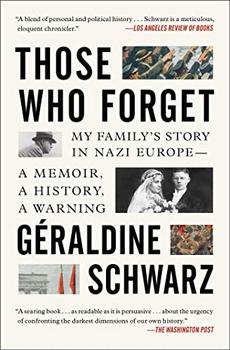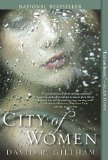Summary | Excerpt | Reviews | Beyond the book | Read-Alikes | Genres & Themes | Author Bio

Children's Lives Under the Nazis
by Nicholas StargardtFrom the book jacket: Children were at the center of Nazi ideology; now we have their history of those
years. Their stories open a world we have never seen before. War came home to
children as a set of events without precedent, spectacular and terrifying by
turns. As the Nazis overran Europe, children were saved or damned according to
their race. Precious few remained unscathed during the war, and most suffered a
moment that overturned their lives. For some, it was the evacuation to become
junior colonists in the East; for others, it was the onset of heavy bombing, the
separation of families or learning to keep their parents alive by smuggling
food, creating black markets and devising their own escape networks. Some herded
women waiting to be shot. Girls manned flak batteries; boys confronted Soviet
tanks.
Drawing on an untouched wealth of original material – school assignments;
juvenile diaries; letters from evacuation camps, reformatories and asylums;
letters to fathers at the front lines; even accounts of children's games —
Nicholas Stargardt breaks stereotypes of victimhood and trauma to give us the
gripping individual stories of the generation Hitler made.
Comment: Reviewers agree that Witnesses at War covers ground
that other books have not. There have been many memoirs written over the
past 50 years by those who spent their childhoods under the influence of the
Nazis (including the excellent On Hitler's Mountain, and some third party accounts, such as Dorothy Macardle's Children of
Europe (1949) and Gerald Posner's Hitler's Children (1991) in which he recorded his interviews with the children of high ranking Third Reich officials, such as Edda Goring and
Rolf Mengele; but Stargardt extends this topic by not only
exploring how children managed during the war, but how these child
survivors are coping with their memories in later life.
The dark side of the tale comes in reading about how easily the children
assimilated the horrors around them. The coping mechanisms used by many Polish
and Jewish children are ghastly but understandable - such as Polish boys acting out
Gestapo interrogations and executions, or camp children playing at 'Kapos and
guards' with the older children beating the younger ones who pretend to be
prisoners fainting during roll call. However, as Stargardt points out, the
same adaptability that helped many Jewish children cope better than their
parents also made it very easy for other children to embrace the Nazi agenda. Many proved much more enthusiastic and adept
at hunting down and denouncing Jews than their parents, and the concepts of purity and dedication were
compelling to many young volunteers who were eager to assist; such as one German student who recorded her feelings having
watched the SS herd Polish
villagers into a shed - "Sympathy with such
creatures? No, at most I feel quietly appalled that such
people exist."
However, the
positive note from this book is elegantly summed up by Ruth Kluger, writing in
The Washington Post, who says "Reading about these years, one can only marvel that Europe
recovered so thoroughly. The war children who survived to see a
more prosperous world did not become a social burden (as many
seem to have feared at the time) but became productive and
responsible citizens. Their wounds were real enough, but they
coped -- and cope -- with them privately, and with dignity. If
there is any hopeful message to be gotten from this harrowing
book, it is the wonder of human resilience."
Perhaps this can give us hope that the countless children affected by wars
today, including the estimated
300,000 child soldiers fighting in more than 85 countries today, might find peace and productive lives at some point in their adult lives, even if not in their childhoods.
![]() This review was originally published in The BookBrowse Review in February 2006, and has been updated for the
January 2007 edition.
Click here to go to this issue.
This review was originally published in The BookBrowse Review in February 2006, and has been updated for the
January 2007 edition.
Click here to go to this issue.

If you liked Witnesses At War, try these:

by Géraldine Schwarz
Published 2022
Those Who Forget, published to international awards and acclaim, is journalist Géraldine Schwarz's riveting account of her German and French grandparents' lives during World War II, an in-depth history of Europe's post-war reckoning with fascism, and an urgent appeal to remember as a defense against today's rise of far-right nationalism.

by David R. Gillham
Published 2013
It is 1943 - the height of the Second World War - and Berlin has essentially become a city of women. In this page-turning novel, David Gillham explores what happens to ordinary people thrust into extraordinary times, and how the choices they make can be the difference between life and death.
Your guide toexceptional books
BookBrowse seeks out and recommends the best in contemporary fiction and nonfiction—books that not only engage and entertain but also deepen our understanding of ourselves and the world around us.